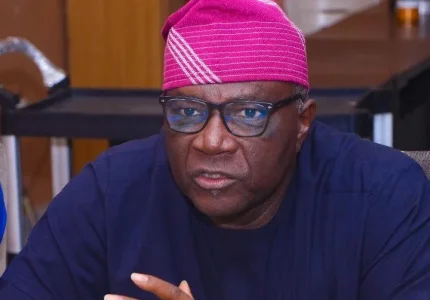
Daily Trust’s latest report revisits a political chapter many thought was closed: the 2019 senatorial election in Akwa Ibom. With a professor now definitively jailed for manipulating results in that race, the paper hints at questions that still haven’t been answered—questions about process, power, and proximity.
Who was convicted, and for what?
Professor Peter Ogban was found guilty of falsifying election results in Akpabio’s favour in the 2019 Akwa Ibom North-West senatorial election. He is now serving a prison sentence.
What does this have to do with Akpabio now?
Officially, nothing. Akpabio lost that election and went on to win a different race in 2023. But Daily Trust’s piece suggests that the 2019 conviction still casts a shadow.
- The Court of Appeal upheld Ogban’s conviction, confirming that rigging occurred during the 2019 election.
- Godswill Akpabio was the candidate whose falsified results were meant to benefit, though he lost the race and has not been accused of wrongdoing.
- Daily Trust’s framing invites reflection, not accusation—its piece underscores the dissonance between a conviction and the silence around the political figure associated with the case.
- The timing of the article is notable, arriving as political realignments and power plays continue across the South-South.
For many Nigerians, the story isn’t about guilt—it’s about imbalance. If someone goes to jail for rigging on your behalf, even in a race you didn’t win, is that chapter closed? Or are there questions the system never quite answers?
Daily Trust may not be saying the quiet part out loud—but it’s certainly underlining it. As political loyalties shift and institutional memory fades, this case resurfaces to ask a broader question: how far does accountability reach, and who decides when it's complete?




